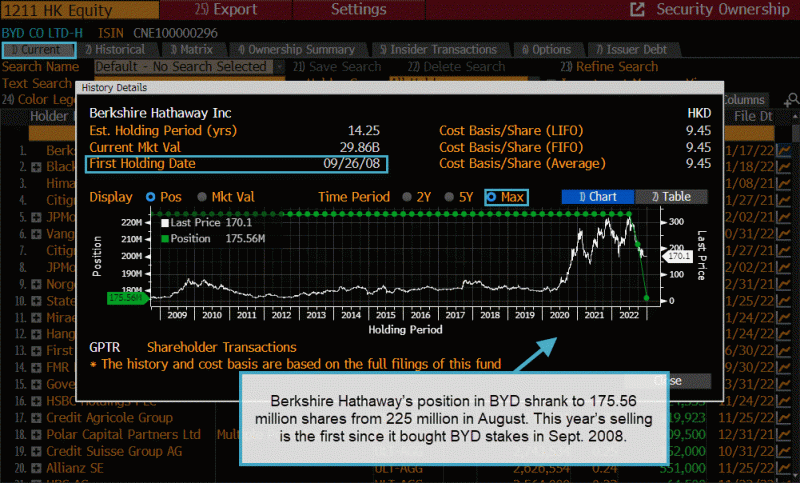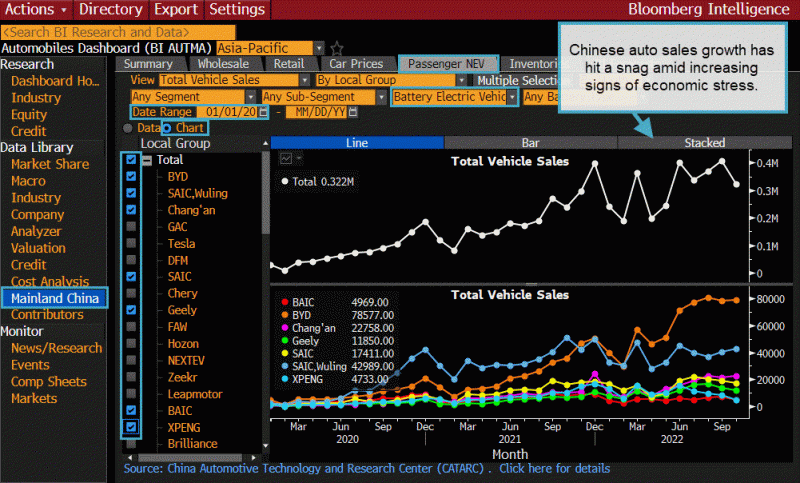This article was written by Bloomberg Data Analysts Yasumasa Nakagomi, Haruka Kuroo and Wataru Yonekura.
Issue
Berkshire Hathaway Inc.’s selling of BYD Co. shares underscores growing challenges in the Chinese electric vehicle market.
Warren Buffett’s Berkshire sold 21.2 million BYD shares equivalent to $525 million in November, while investors including Deutsche Bank AG and Franklin Resources Inc. joined the selling.
That’s at odds with Berkshire’s huge increase of holdings in tech companies such as Taiwan Semiconductor Manufacturing Co. Auto inventories have grown as sales slumped in an economy hit by Covid restrictions.
Tracking

Berkshire Hathaway’s position in BYD shrank to 175.56 million shares from 225 million in August. This year’s selling is the first since it bought BYD stakes in Sept. 2008. Note that the change shows all transactions reported by filers, which may not exactly match the number of shares sold or bought due to reporting rules. The selling comes as the automobile industry faces growing signs of stress in the world’s second-largest economy. Battery EV registrations in China dropped by 21% to 321,066 in October from September, according to the China Automotive Technology and Research Center.

BYD’s sales growth has been stagnant this half after a bounce in the first half, although revenues are higher than those of local rivals. Chinese subsidies for EVs that encouraged rapid expansion over the past decade are due to be phased out at the end of 2022. BYD is already raising the price of some cars, citing changes in government subsidies and volatile input costs. By contrast, Tesla Inc. last month cut the price of China-made models as competition intensifies.